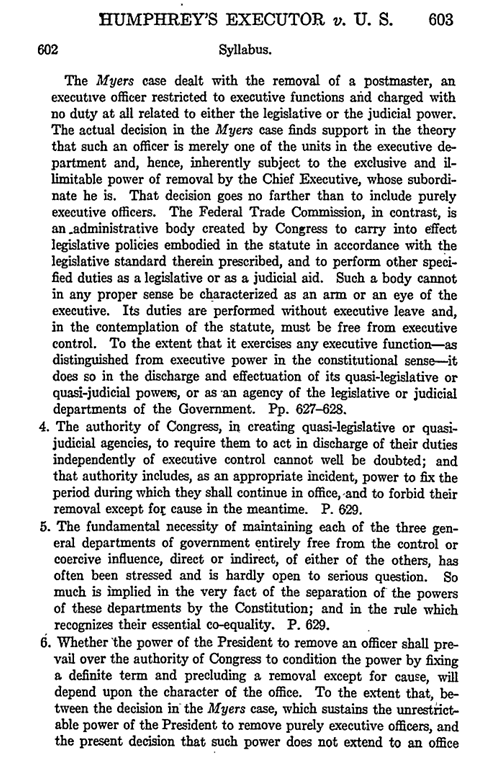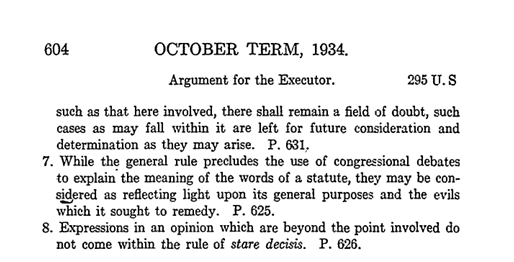🧵Good morning and welcome to Twitter Law School. Today will be a refresher on injunctions, stays, and merits decisions. This will be followed by an overview of Humphrey's Executor and why it matters. Grab caffeine conveyance beverage of choice and let's get it.
Let's start with defining terms: an injunction is a court order that compels a party to do or not to do something. A preliminary injunction is an injunction that is a court order that is entered while a decision on the merits of the case are pending. That's why it's preliminary.
Why would a court issue a preliminary injunction? Because a party can suffer harm during the time it takes to a case to get through the court system to a merits ruling. A preliminary injunction is intended to keep the parties in the state they are in at the time a case is started
A stay is a court order that stops another court order from going into effect. A stay stops the order from going into effect until the terms of the stay are met. For example, an order is stayed pending a decision from an appellate court on the case. Stay just means stop.
A merits decision is a decision by a court which resolves the issues that are before the court in that case. The issues in the case are the merits of the case. A merits decision is one in which a court rules on the case itself.
I cannot stress the following enough: the grant or denial of a preliminary injunction is not a merits ruling. A grant or denial of a stay of a preliminary injunction is not a merits ruling. Any such rulings are about that preliminary injunction only and do not resolve the case.
Now, a ruling on a preliminary injunction and any stay of the injunction gives some indication about how a court will likely rule on merits since one of the tests to get a preliminary injunction is likelihood of winning on the merits. It is not, however, a merits ruling.
There is no excuse, none whatsoever, for people to state that decisions on preliminary injunctions and decisions on stays are merits rulings. Absolutely none. These are not difficult concepts. Anyone who reports to the contrary is lying, stupid, or healing power of and.
Now lets discuss Humphrey's Executor. Humphrey's Executor is the Supreme Court decision from 1935 in which SCOTUS held that Congress can restrict the power of the President to fire members of certain agencies to the causes set forth in the statute. 





It's called Humphrey's Executor because Humphrey was the name of the commissioner who was fired from the FTC. He died several months after being fired and the executor of his estate sued for back pay on the grounds that FDR had no grounds for firing him.
This is the case that established that there are such things as independent agencies and that Congress can set limits on the power of the Executive to fire someone who is, ostensibly, a member of the Executive branch.
That is why the case is important. Humphrey's Executor is one of the main support beams for the entire structure of the administrative state. The concept of quasi legislative and quasi judicial agencies that are not really part of the Executive branch was established here.
Thus, any overturning of Humphrey's Executor would mean that the so called independent agencies would return to being part of the Executive branch and thus the President can fire at will. It also would curb the power of the Legislative branch over the Executive branch.
This is a very important argument and I have absolutely no idea how the current SCOTUS will rule on this. Anyone who tea leaf reads and comes up with a definitive answer should use those powers for picking lottery numbers.
Anyway, the tl;dr is that rulings on preliminary injunctions and on stays are not rulings on the merits of a case and stop saying they are. Humphrey's Executor is the case that more or less created the concept of independent agencies and might be overturned. Corgi time! /fin
• • •
Missing some Tweet in this thread? You can try to
force a refresh




